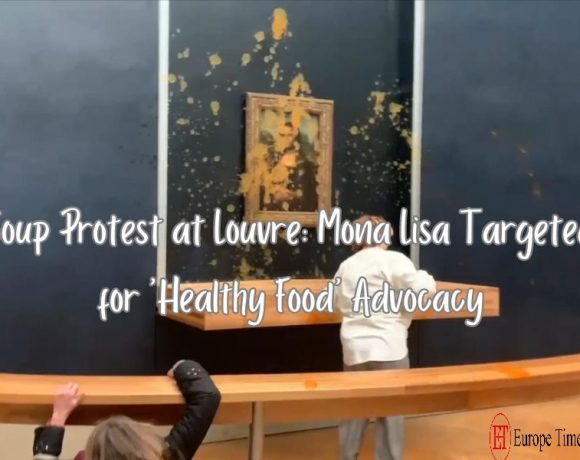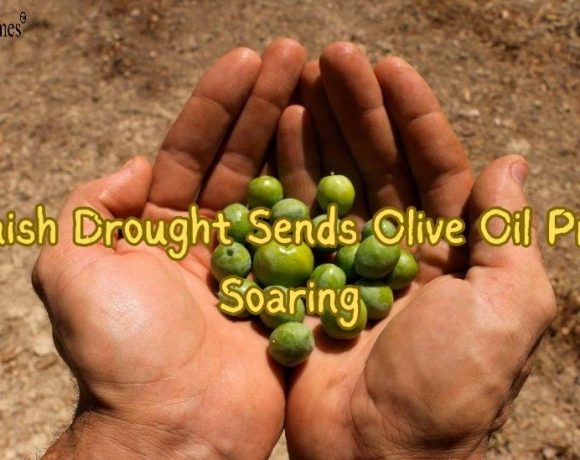
Environmental protesters targeted the iconic Mona Lisa at the Louvre in Paris, throwing soup at the protected artwork to emphasize their call for the right to “healthy and sustainable food.” The 16th Century masterpiece by Leonardo da Vinci, housed behind protective glass, remained undamaged despite the unconventional protest.
Video footage captured two female protesters, affiliated with a group called Riposte Alimentaire (Food Counterattack), tossing liquid at the painting and raising questions about the perceived prioritization of art over the fundamental right to nutritious food. The protesters, clad in T-shirts reading “food counterattack,” stood in front of the artwork, asserting concerns about the agricultural system and the challenges faced by farmers.
The Louvre promptly assured the public that the painting was unharmed, thanks to the security measures in place. The Salle des Etats, where the Mona Lisa is displayed, was evacuated, and the room reopened to visitors after cleaning at 11:30 local time. The museum announced its intention to file a complaint regarding the incident.
The group Riposte Alimentaire released a statement, posted on social media platform X, explaining that the protest was part of their broader efforts to integrate “food into the general social security system.” They argued that the current food model stigmatizes the most vulnerable and fails to respect the fundamental right to food. The group proposed the issuance of a monthly food card worth €150 (£128) for citizens to use on food.
France’s Minister for Culture, Rachida Dati, condemned the act, stating that “no cause” could justify targeting the Mona Lisa, emphasizing the painting’s status as part of the heritage for future generations. The incident occurred amid ongoing farmer protests in Paris, where demonstrators sought relief from rising fuel costs and simplified regulations, blocking key roads in and out of the city.
The Mona Lisa, housed in the Louvre since the early 1950s, has been shielded behind safety glass. In 2019, the museum installed a more transparent form of bulletproof glass to enhance its protection. This incident echoes a 2022 event when an activist threw cake at the painting, urging people to “think of the Earth.” The Mona Lisa’s history includes a notorious theft in 1911, with recovery two years later after the perpetrator attempted to sell it in Italy.
Picture Courtesy: Google/images are subject to copyright

